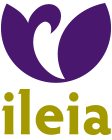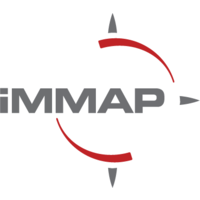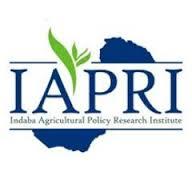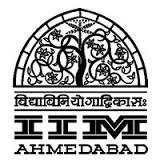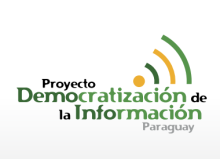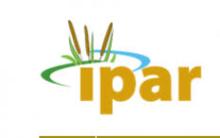La Biblioteca de la Tierra incluye recursos de más de 1.890 proveedores de información nacionales e internacionales. Aprenda más sobre las organizaciones e instituciones que utilizan el Land Portal para compartir sus investigaciones, datos e historias con acceso abierto.
ILC Africa
ILC Africa is a Regional Platform of the International Land Coalition (ILC), a global alliance of civil society and intergovernmental organisations working together to promote secure and equitable access to and control over land for poor women and men.
The shared goal of ILC's over 250 members is to realise land governance for and with people at the country level, responding to the needs and protecting the rights of women, men and communities who live on and from the land.
The Regional Platform-ILCAfrica's membership is 76, across 26 countries in Sub-saharan Africa.
ILC Rangelands Initiative
The Rangelands Initiative of the International Land Coalition (ILC) is a global programme facilitating learning between and providing technical support to different actors who are working to make rangelands more tenure secure. The programme works through ILC members and partners, and ILC commitment-based initiatives in Africa coordinated by RECONCILE (Resource Conflict Institute) Kenya, in Latin America coordinated by FUNDAPAZ (Foundation for Development in Justice and Peace) Argentina, and in Asia coordinated by JASIL Mongolia and MARAG (Maldahari Rural Action Group) India. The global component is lead by a group of core partners - ILRI, UNEP, IFAD, FAO- Pastoralist Knowledge Hub and the US-based Rangelands Partnership, and coordinated by ILRI.The Rangelands Initiative supports ILC members and partners to develop or influence enabling policy and legislation, and to improve the implementation of policy and legislation in a manner that protects rangelands resources and supports productive and sustainable rangeland use. A key input to this is the joint identification of solutions based on innovation and good practice, through research, knowledge generation, and experience sharing.
ILEIA
At ILEIA, we are committed to strengthening family farming rooted in agroecology. We do this by building bridges between the social movements, the science and the practice of agroecology through documenting and systematising grounded practices. As communication experts, we translate complex ideas into easily understandable language to bring together the insights derived from diverse ‘ways of knowing’, and to catalyse synergies among different actors working to amplify agroecology. We produce a quarterly magazine called Farming Matters, engage in advocacy, training, and facilitation of learning.
We’re proud to be part of the AgriCultures Network, an international network of like-minded organisations documenting and systematising grounded practices. Our network partners, in Brazil, Peru, Senegal, Ethiopia and India, produce Farming Matters’ sister magazines and together we share a mission to mainstream the values, principles and practices that underlie family farming based on agroecology.
Illegal logging portal
The Illegal Logging Portal, hosted and maintained by Chatham House, provides information on illegal logging and the trade in illegal timber. It provides an overview of some of the key issues and developments, and includes a searchable database of documents and news items from around the world.
Illovo Sugar Africa
The group is Africa’s biggest sugar producer and has extensive agricultural and manufacturing operations in six African countries. The group produces raw and refined sugar for local, regional African, European Union (EU), United States of America (USA) and world markets from sugar cane supplied by its own agricultural operations and independent outgrowers who supply cane to Illovo’s factories. High-value products manufactured downstream of the sugar production process are sold internationally into niche markets. Installed electricity generating capacity, fuelled by renewable resources, annually provides around 90% of the group’s energy requirements. The group is a wholly-owned subsidiary of Associated British Foods plc (ABF), a diversified international food, ingredients and retail group operating in 48 countries.
Imazon
O Imazon é um instituto de pesquisa cuja missão é promover o desenvolvimento sustentável na Amazônia por meio de estudos, apoio à formulação de políticas públicas, disseminação ampla de informações e formação profissional. O Instituto foi fundado em 1990, e sua sede fica em Belém, no Pará. Em 25 anos de existência, o Imazon publicou 648 trabalhos técnicos, dos quais quase um terço foram veiculados como artigos em revistas científicas internacionais. Além disso, o Instituto publicou 71 livros e 30 livretos, entre outras categorias de publicações.
O Imazon é uma associação sem fins lucrativos e qualificada pelo Ministério da Justiça do Brasil como Organização da Sociedade Civil de Interesse Público (Oscip).
Imazon
iMMAP
iMMAP is an international not-for-profit organization that provides information management services to humanitarian and development organizations, enabling partners to make informed decisions that ultimately provide high-quality targeted assistance to the world’s most vulnerable populations.
We support humanitarian actors to solve operational and strategic challenges. Our pioneering approach facilitates informed and effective emergency preparedness, humanitarian response, and development aid activities by enabling evidence-based decision-making for UN agencies, humanitarian cluster/sector leads, NGOs, and government operations.
iMMAP has been at the forefront of information management support for humanitarian clusters (UN and International NGOs): Logistics, WASH, Health, Protection, Education, Nutrition, Camp Management, Protection, Food Security, and Gender-Based Violence.
Inclusive Development International
Every year millions of people are displaced from their homes, lands and livelihoods in the name of development.
Disenfranchised from decision-making, poor and marginalized communities are forced to shoulder the costs of development and are thrust into deeper poverty. This crisis is fueled by unaccountable political and economic institutions that promote harmful investment, trade and development projects that fail to safeguard people’s rights, preserve common resources and distribute benefits equitably.
We have been deeply inspired by people who have risked their lives and liberty resisting displacement and other human rights abuses caused by unjust development, unbridled greed and unchecked power. We have witnessed the destruction of entire communities whose struggles have become our own, but we have also seen how the world’s most powerful corporations can be held accountable by organized communities engaged in persistent, smart and strategic advocacy.
We founded Inclusive Development International in order to support the struggles of those fighting on the front lines for just and inclusive development.
Inclusive Development International works to make the international economic system more just and inclusive.
We support and build the capacity of grassroots organizations and communities to defend their land, natural resources and human rights against threats from harmful investment, trade and development projects. Through research, casework and policy advocacy, we work to strengthen human rights regulation and accountability of corporations, financial institutions and development agencies.
IDI was established in 2011 as a project of Social and Environmental Entrepreneurs (SEE) a non-profit public charity exempt from federal income tax under Section 501(c)(3) of the Internal Revenue Code.
Indaba Agricultural Policy Research Institute
Established in October 2011, the Indaba Agricultural Policy Research Institute (IAPRI) is a non-profit Zambian company limited by guarantee which collaboratively works with public and private stakeholders in the agricultural sector. IAPRI is led by a local Board of Directors drawn from various state and private sector stakeholders.
Our Vision: To be the Centre of Excellence for Agricultural Policy Research and Outreach in Zambia.
Our Mission: IAPRI exists to carry out agricultural policy research and outreach, serving the agricultural sector in Zambia so as to contribute to sustainable pro-poor agricultural development. In carrying out its activities, IAPRI will promote the highest standards of credibility and integrity in all its technical outputs and the way all members of the company and staff relate to others.
IAPRI's mandate is to utilize empirical evidence to advise and guide the Government of the Republic of Zambia and other stakeholders on agricultural investments and policies. The overarching goal of IAPRI's policy analysis and outreach efforts is to identify policies and investments in the agricultural sector that can effectively stimulate inclusive economic growth and poverty reduction. This is achieved through three core operational activities:
Producing trusted, impartial, and high-quality research on agricultural, food, and natural resource policy issues in Zambia and the wider southern Africa region;
Integrating research findings into national, regional, and international programs and policy strategies to promote sustainable agricultural growth and cut hunger and poverty in Zambia; and
Supporting the development and strengthening of capacity for policy research, analysis and outreach of public and private institutions in Zambia.
Inderscience Publishers
Inderscience is a global company, a dynamic leading independent journal publisher which has grown to a medium-sized enterprise, large enough to have the capabilities of a major company but small enough to be flexible and responsive to the requirements of its editors, authors and subscribers.
The company disseminates the latest research across the broad fields of science, engineering and technology; management, public and business administration; environment, ecological economics and sustainable development; computing, ICT and internet/web services, and related areas. It grew out of successfully establishing
- a cluster of automotive titles,
- a series of titles which emerged from the ground-breaking International Journal of Technology Management which established the discipline of technology management
- and launching titles in areas of long-term concern (e.g. energy, environment and sustainable development)
Inderscience offers over 35 years' experience in publishing and has succeeded in building up a substantial collection approaching 400 high-quality peer-reviewed international research journals in both online and print formats. We offer a variety of ways you can keep up-to-date with the latest published leading edge research while our online collection represents a fully-searchable digital archive of around 60,000 articles.
Our Aims
Inderscience journals are designed to:
- Map new frontiers in emerging technologies and innovation in research, industry and governance
- Link centres of excellence world-wide to stimulate and enhance creative and application-oriented problem solving for society
- Explore the synergy and collaboration within the sciences, management and policy creation and implementation
- Establish authoritative channels of communication between experts, policy makers and practitioners in academia, industry and government
Index Mundi
IndexMundi is a data portal that gathers facts and statistics from multiple sources and turns them into easy to use visuals.
Our mission is to turn raw data from all over the world into useful information for a global audience. We capture statistics that are scattered or otherwise hidden and present them via user-friendly maps, charts, and tables which allow visitors to understand complex information at a glance.
The Team
Miguel Barrientos, Founder: Miguel is an accomplished technologist with extensive experience in the business intelligence and data warehousing sectors. Prior to launching IndexMundi, Miguel helped multiple Fortune 500 companies design and implement large-scale data analysis systems. Miguel holds MS and BS degrees from the Massachusetts Institute of Technology.
India Biodiversity Portal
The India Biodiversity Portal is a repository of information designed to harness and disseminate collective intelligence on the biodiversity of the Indian subcontinent.
This portal aims to provide information on biodiversity in India. It is designed to harness collective knowledge, seek voluntary participation of users and establish a participatory platform for content generation, verification and usage. The Portal aims to facilitate and enable widespread participation by all citizens in contributing and accessing information on Indian biodiversity, that benefits science and society, contributes to a sustainable future; and guides the development and use of this Portal.
The IBP intends to aggregate biodiversity information for public good, by leveraging Web and providing easy open access to this wealth of information. The portal intends to mobilize a collaborative community that will build high-quality map-based multimedia information on India's biodiversity.
India Environment Portal
The India Environment Portal is initiated and managed by the Centre for Science and Environment (CSE) promoted by the National Knowledge Commission (NKC), Government of India.
The Centre for Science and Environment (CSE) is an independent, public interest organization, which uses knowledge for activism. The Centre was started in 1980, by India's top environmentalist, Anil Agarwal and continues to work to push, prod and argue for environmental management in the country. It believes it can and must make a difference.
Indian Academy of Sciences
Founded in 1934 by Sir C V Raman the Indian Academy of Sciences, Bangalore was registered as a Society on 27 April 1934 with the main objective of promoting the progress and upholding the cause of science. The Academy began functioning with 65 Founding Fellows and the formal inauguration took place at the Indian Institute of Science.
Indian Institute for Human Settlements
The Indian Institute for Human Settlements (IIHS) is a national education institution committed to the equitable, sustainable and efficient transformation of Indian settlements.
By 2050, half of all Indians will live in urban areas as the country undergoes a dramatic urban transition with deep economic, political, social, cultural and ecological impacts. Our future hinges on this urban transition being handled with wisdom and alacrity. Yet the fundamental constraint in the equitable and orderly growth and transformation of urban India is neither capital nor technology. The chief impediment is the availability of sufficient numbers of well educated professionals committed to the common good who can play the role of urban change-makers.
IIHS aims to establish an independently funded and managed National University for Research and Innovation focused on the challenges and opportunities of India’s urban transition. The proposed IIHS University will host an integrated programme of quality campus-based education and research, training and lifelong learning for working professionals, distance and blended learning, as well as a whole array of practice and advisory services. The university will have a strong interdisciplinary orientation bringing together theory and praxis that is grounded in the South Asian context and also engages with and draws from knowledge across the globe.
IIHS is a proposed networked institution across India. Its 55-acre mother campus in Bengaluru will consist of academic, research and social infrastructure including student and faculty housing and will be complemented by the IIHS City Campus, located in North Bengaluru.
IIHS obtained its FCRA registration in December 2012. The Foreign contribution received during FY 2013-14 was Rs 2.24 crores. The balance unutilised Foreign contribution as on 31st March 2014 was Rs 1.37 crores.
IIHS has also been designated a National Resource Centre (NRC) by the Ministry of Housing and Urban Poverty Alleviation.
Indian Institute of Management, Ahmedabad
Led by Dr. Vikram Sarabhai, Shri. Kasturbhai Lalbhai and proactively supported by the then Chief Minister of Gujarat, Dr. Jivraj Mehta, a group of enlightened individuals set up IIMA. This group ably wove together a coalition of five actors - the governments at the centre and the state, the local industrialists, the Ford Foundation and the Harvard Business School, in a true spirit of public private partnership to establish the Institute.
IIMA has consistently been ranked as the number one management school in the country year after year in the last several years. In its latest ranking, The Economist has ranked IIMA at 56 among the top 100 international B-schools in the world that offer full time MBA. The Financial Times (FT) has ranked the two-year post graduate programme in management (PGP) of IIMA in the top ten programmes in the category of Masters Programmes in Management that do not require work experience as pre-requisite for admission. FT reported that this was the first time that any Indian B-school was not only included in the survey but also achieved such high ranking. The Financial Times has also ranked the one-year post graduate programme in management for executives (PGPX) among the top MBA programmes globally. The two post graduate programme in management with specialization in agri-sector (PGP-ABM) is ranked at number one among comparable programmes globally by Eduniversal.
Indian Institute of Management- Bangalore
Indian Institute of Management Bangalore is a leading research-focused business school in Asia with around 100 full time faculty members, more than 1200 students across various long duration programmes and nearly 5000 annual Executive Education participants.
Located in India’s high technology capital, we are in close proximity to some of the leading corporate houses in the country, ranging from information technology to consumer product companies, giving IIMB the added advantage of integrating classroom knowledge with practical experience.
IIMB's long-duration post graduate programmes comprise the Fellow Programme in Management (FPM), the Post Graduate Programme in Public Policy and Management (PGPPM), the one year full-time Executive Post Graduate Programme in Management (EPGP), the Post Graduate Programme in Enterprise Management (PGPEM), and the Post Graduate Programme in Management (PGP). All these programmes are very highly rated and IIMB alumni occupy senior managerial and academic positions around the world.
Along with ten disciplinary areas and five centres of excellence that offer courses and conduct research on interesting questions facing various sectors of industry, IIM has three faculty recruiting centres – the Centre for Management Communication, the Centre for Public Policy, and the N S Raghavan Centre for Entrepreneurial Learning.
Indian Law Institute (ILI)
Indian Law Institute (ILI) was founded in 1956 primarily with the objective of promoting and conducting legal research. The objectives of the Institute as laid down in its Memorandum of Association are to cultivate the science of law, to promote advanced studies and research in law so as to meet the social, economic and other needs of the Indian people, to promote systematization of law, to encourage and conduct investigations in legal and allied fields, to improve legal education, to impart instructions in law, and to publish studies, books, periodicals, etc.
The Institute is an autonomous body registered under the Societies Registration Act, 1860. The Indian Law Institute has the requisite independence and academic freedom to carry out its objectives. The membership of the Institute is now nearly three thousand representing the persons interested in the study and advancement of law.
Hon'ble Chief Justice of India is the ex-officio President of the Institute. The Union Minister of Law & Justice is its Ex-officio Vice-President. The Attorney General for India, some Judges of the Supreme Courts and High Courts, Solicitor General of India, Chairman, Law Commission and University Grant Commission and other prominent lawyers and law professors etc. are the members of the Governing Council.
The Institute's Library is one of the best libraries in the country. It has more than 75000 titles. It subscribes to 270 current legal periodicals. JILI is one of the leading law journal. ASIL contains surveys written by academicians and practitioners.
The Indian Law Institute has been granted Deemed University Status in 2004 vide Government of India, Ministry of Human Resource Development Notification No. F.9-9/2001-U.3 dated 29.10.2004.
Indigenistas Associados
A INA é uma entidade civil sem fins lucrativos, de caráter temático e corporativo, formalmente instituída em 08 de julho de 2017. Seus principais objetivos são a busca pela promoção e defesa dos direitos, interesses e prerrogativas individuais e coletivas de seus associados em todo o território nacional, bem como o posicionamento e a incidência na formulação, execução e defesa da política indigenista, a partir da perspectiva da autonomia dos povos indígenas e do Estado pluriétnico e democrático. A INA possui em seu quadro sócios regulares, com vinculação à Funai; e sócios colaboradores e beneméritos, sendo estas condições para a associação de indigenistas de modo geral.
Frente aos ataques cada vez mais frequentes aos direitos indígenas, um grupo de servidores da Funai permanentemente mobilizado decidiu fundar a Indigenistas Associados. A INA é construída visando a necessidade da construção de um instrumento autônomo e representativo para a defesa e promoção dos direitos, interesses e prerrogativas individuais e coletivas dos servidores da Funai e demais associados, visando posicionar-se e incidir na formulação e execução da política indigenista, a partir da perspectiva da autonomia dos povos indígenas, em defesa do estado multiétnico e democrático.
A convicção da força que emana da atuação coletiva nos une. Lutaremos ativamente pela ética no serviço público, pela melhoria dos serviços na Funai, pela valorização do indigenista em todos os seus ofícios, e por uma política pública que sirva aos povos indígenas qualitativamente. Entendemos ser urgente a nossa organização, mobilização e articulação, tendo em vista o momento de ameaças aos direitos dos povos indígenas e à política indigenista de Estado, e ainda diante da histórica falta de estrutura, recursos e segurança na qual os servidores da Funai estão inseridos.
Indigenous Peoples Issues and Resources
Indigenous Peoples Issues & Resources is the leading source for news, information, articles, videos, and more on indigenous peoples from around the world. Our mission is to fight for the rights of indigenous and tribal peoples. We accomplish this mission by:
* promoting full recognition of the rights and territories of indigenous and tribal peoples;
* promoting the development of indigenous and tribal peoples and their participation in decision and policy making;
* establishing effective networks between indigenous and tribal peoples at regional, state, and international levels;
* exchanging information and experiences to empower members to advocate for the rights of indigenous and tribal peoples, enabling them to have a positive impact;
* to provide articles, videos, resources, news, and information concerning indigenous and tribal peoples; and
* promoting worldwide solidarity between indigenous and tribal peoples
Indo-Global Social Service Society
Indo-Global Social Service Society (IGSSS) is a non-profit organisation working with the mandate for a humane social order based on truth, justice, freedom and equity. Established in 1960, IGSSS works for development, capacity building and enlightenment of the vulnerable communities across the country for their effective participation in development.
With its presence in 25 states and one Union Territory of India, IGSSS has set its thematic focus on promoting sustainable livelihood, energising the youth as change makers, protecting lives, livelihood and assets from the impact of hazards, advocating for the rights of CityMakers (Homeless Residents) and developing cadre of leaders from the community and civil society organisations. Gender and Youth are underlining theme across all its interventions.
Iniciativa Mesoamericana de Mujeres Defensoras de Derechos Humanos
La Iniciativa Mesoamericana de Mujeres Defensoras de Derechos Humanos (IM-Defensoras) inició su trabajo en 2010 con el fin de dar una respuesta integral y regional al aumento de la violencia contra las defensoras de derechos humanos en Mesoamérica.
Actualmente, la IM-Defensoras busca fortalecer y vincular a defensoras que participan en distintas organizaciones y movimientos sociales para fortalecer redes de protección y solidaridad entre ellas y aumentar la visibilidad, el reconocimiento y el impacto de su trabajo por los derechos humanos.
Las organizaciones que impulsamos la IM-Defensoras buscamos diseñar alternativas de protección integral feminista que tomen en cuenta el contexto de discriminación contra las mujeres imperante en la región para responder a la violencia que enfrentan las defensoras por la labor que realizan, favoreciendo la continuidad de sus labores en condiciones de seguridad, igualdad y bienestar.
La IM-Defensoras es una articulación formada por la Colectiva Feminista para el Desarrollo Local (El Salvador), Consorcio para el Diálogo Parlamentario y la Equidad Oaxaca (México), JASS-Mesoamérica y las redes nacionales de defensoras de El Salvador, Honduras, México y Nicaragua, las cuales en conjunto articulan a más de 2,000 mujeres defensoras de derechos humanos.
Iniciativa por la Democratización de la Comunicación en el Paraguay
La iniciativa por la Democratización de la Comunicación en el Paraguay, integrada por organizaciones sociales conformadas por VOCES Paraguay, la Coordinadora de Organizaciones Campesinas e indígenas COCIP (ONAC, MCNOC, CONAMURI, CNOCIP y la mesa indígena) la Central de Cooperativas de Viviendas por Ayuda Mutua del Paraguay (CCVAMP) la Coordinadora de Empresas Asociativas Rurales Departamentales (CEARD) y la Mesa de Desarrollo de Organizaciones Sociales de Cordillera.
Initiative on Quiet diplomacy
IQd is working to achieve a just and stable world without violent conflict, in which individuals and groups can peacefully reconcile their interests, enjoy their rights, satisfy their needs, and pursue social and economic development.
Our principal aim is to stimulate and inform institutional development within regional, sub-regional and other inter-governmental organisations to enable effective conflict prevention through early action and quiet diplomacy.
Our work consists of three primary areas:
- Engaging IGOs and other key actors to share institutional arrangements, experience, knowledge and skills
- Improving policy and practice through the development of practical tools for conflict prevention actors and institutions
- Supporting and facilitating dialogue and mediation processes in specific situations.
Initiative Prospective Agricole et Rurale
L’IPAR est un espace de réflexion, de dialogue et de proposition pour des politiques agricoles et rurales concertées au Sénégal et dans la région ouest-africaine. L’initiative a été suscitée par des spécialistes de l’agriculture et du monde rural qui appuyaient déjà les organisations paysannes et qui étaient intéressés par la création d’espaces permanents de réflexion prospective et stratégique.
Cette initiative a été formalisée en 2005 par quatre institutions, deux publiques (DAPS et ISRA) et deux privées (CNCR et ENDA GRAF).
Un protocole d’accord unit les initiateurs de l’IPAR. En août 2008, une assemblée générale constitutive a permis de faire évoluer l’IPAR à une association d’utilité publique, constituée de personnes physiques, pour garantir son autonomie d’action. Elle a adopté les statuts et le règlement intérieur et défini les organes de gouvernance de l’association.
Elle est désormais reconnue par les autorités compétentes, sous le récépissé n°13615/MINT/DAGAT/DEL/AS. Le personnel du Secrétariat exécutif de l’IPAR est constitué d’une équipe pluridisciplinaire composée de sociologues, d’économistes et d’agronomes, appuyés par les experts du Comité scientifique et les membres du Conseil d’Administration.
Innovation Environnement Développement Afrique
IED Afrique est une organisation indépendante, à but non lucratif, basée au Sénégal, qui capitalise une quinzaine d’années d’expérience en Afrique de l’Ouest francophone. Elle intervient sur les problématiques de développement durable et de citoyenneté en Afrique en mettant l’accent sur les innovations méthodologiques et participatives.
Créée le 1er septembre 2005, elle prend le relais du Programme Sahel de l’Institut International pour l’Environnement et le Développement (IIED), mis en place en 1993 dont elle poursuit et renforce les acquis.
Une conviction forte
Le développement de l’Afrique passe nécessairement par un renforcement des capacités notamment des groupes les plus vulnérable et l’établissement de relations équitables entre les différents acteurs de façon à permettre leur réelle participation à l’amélioration des conditions de vie et du bien être des populations.
Une mission citoyenne
Contribuer à la réalisation d’un développement équitable et durable à travers la promotion des politiques et de pratiques inclusives de décentralisation, de gouvernance environnementale et d’agriculture.
Innovations for Successful Societies
ISS chronicles government innovation, especially in low- and middle-income countries. Often the most creative and successful ideas are generated internally, framed by people who have deep knowledge of local conditions. ISS enables practitioners to tell their unique stories and join a knowledge network of reform-minded public servants from around the globe. ISS case studies distill these conversations into a tool for learning, for cross-cutting analysis, and for scholarship.
Innovations for Successful Societies is a program of the Woodrow Wilson School of Public & International Affairs. The program started in 2008.
Insight Share
We are a community development organisation. Our work captures the best aspects of communications technology and participatory techniques; supporting communities to explore their issues and devise solutions to the challenges they face.
As leading practitioners in the field of Participatory Video, we have dedicated ourselves to delivering transformational projects with some of the world’s most marginalised communities. We have directly facilitated hundreds of projects in over sixty countries, working with diverse peoples to address a wide variety of issues.
Founded in 1999, our organisation is committed to improving and shaping the use of Participatory Video in all its forms, and building a grassroots movement of practice to sustain its role as a powerful community engagement tool. We have trained hundreds of facilitators, founded numerous community video ‘hubs’ and produced free resources on a range of approaches.
Our vision is a world where healthy and resilient communities draw upon local knowledge, experience, skills, generational wisdom and intuition to exert influence over the critical issues they face.
Our Mission is to increase the agency, capacity, confidence and motivation of communities to seize control of the factors influencing and controlling their lives. While every community we engage is unique and every set of circumstances we face is different, there are core principles that guide our approach.
InsightShare is based in the UK but our team is spread far and wide, with people in every continent around the world. Much of our work takes place in Africa, Asia and Latin America, however we continue to deliver projects and training courses in our ‘backyards’; maintaining strong connections with our own communities.
We highly value free, prior and informed consent. We are experts in the use of video-based consent during our projects and have a transparent privacy policy to clarify the rights of anyone we engage with.
Insitute of Development Research and Development Policy
How do various forms of globalisation affect the economy, politics, and society at a national and subnational level? How does globalisation influence governance? How can the main and side effects of development programmes be measured? How can the use of resources be controlled in a sensible manner? Such questions that are relevant for scientific and practical international collaboration are looked at by around 50 researchers at IEE from an economic, legal, and social scientific perspective. At present, the institute is conducting research into associated questions concerning food security, labour markets, and labour and social standards, and how to combat the causes of migration. The multidisciplinary and significantly international research approach is also reflected in the IEE teaching: the institute offers the MA course in Development Management in Bochum and in Cape Town, runs the PhD programme in International Development Studies at RUB and is closely involved in a collaboration with Afghan universities. People from more than 30 nations research, teach, manage, and learn at the IEE.



